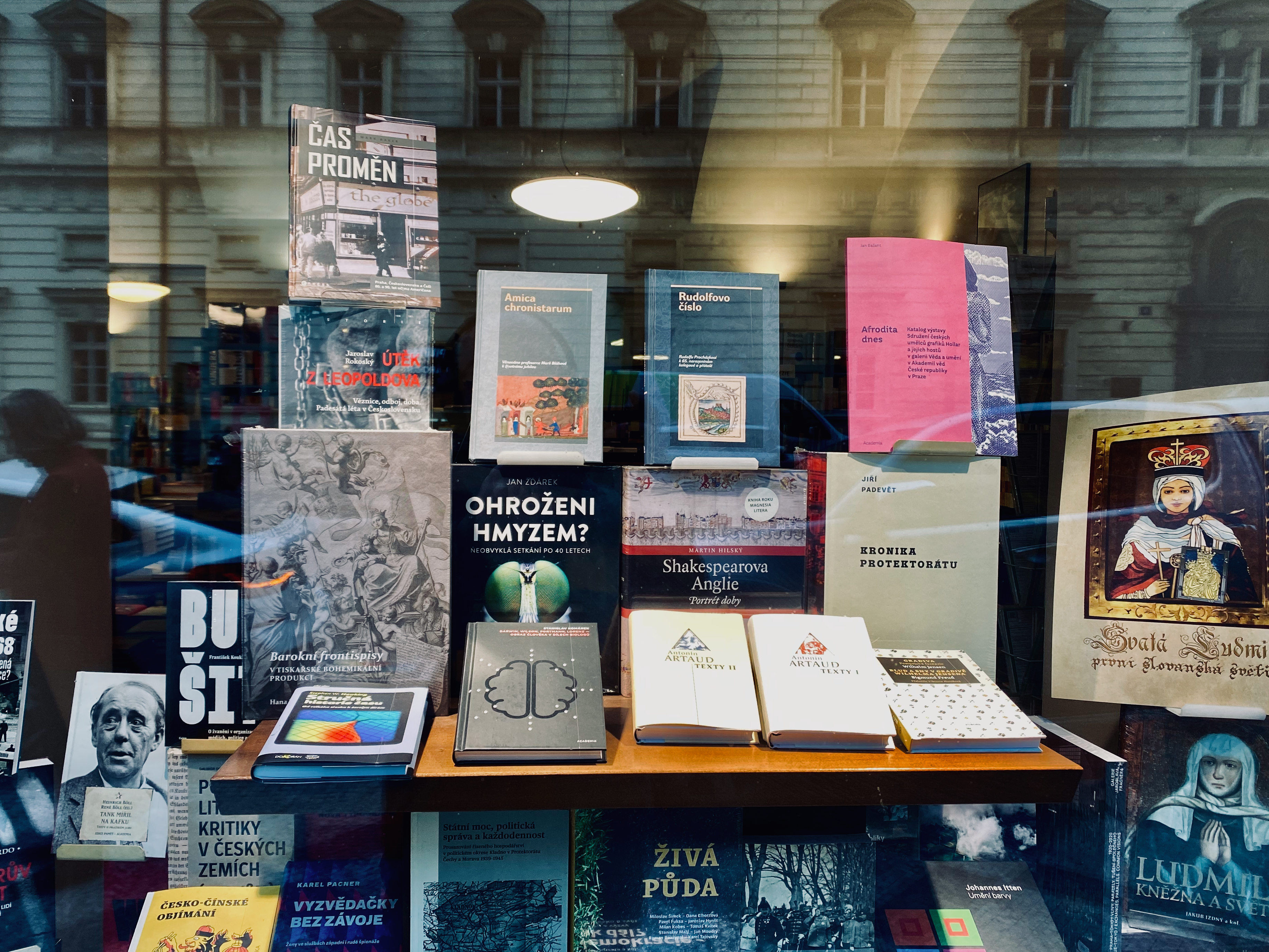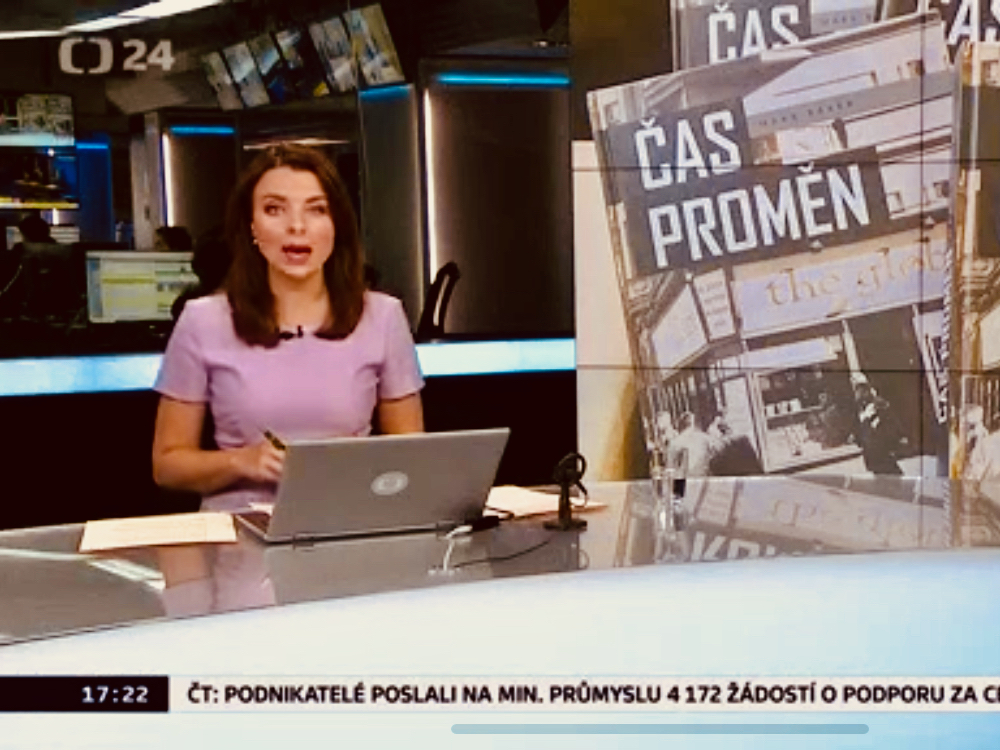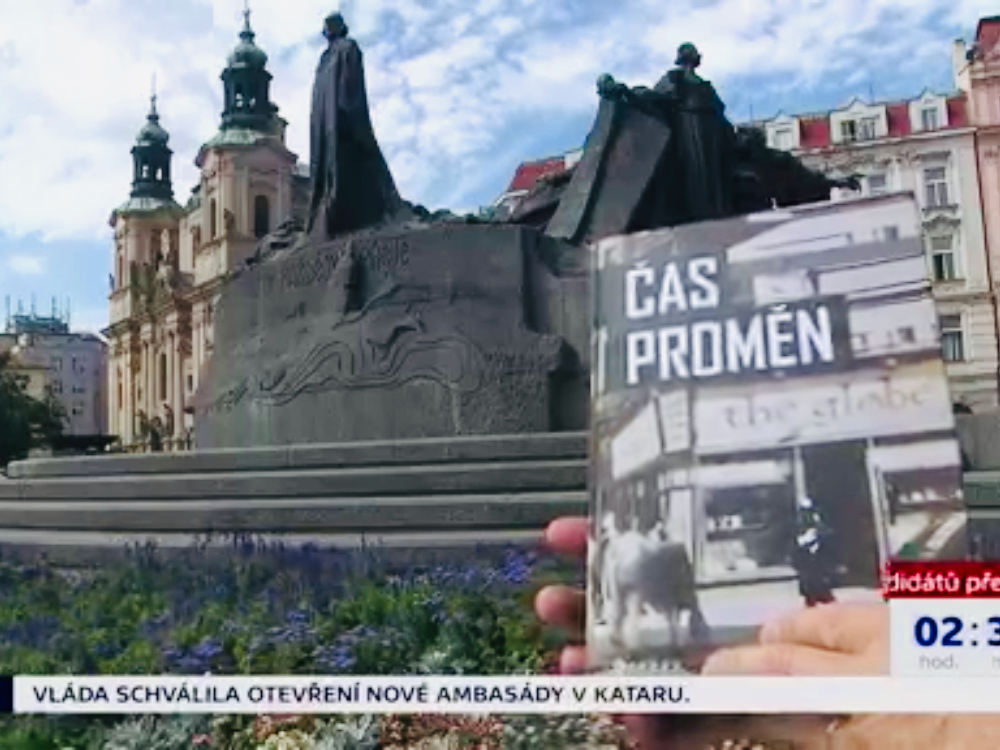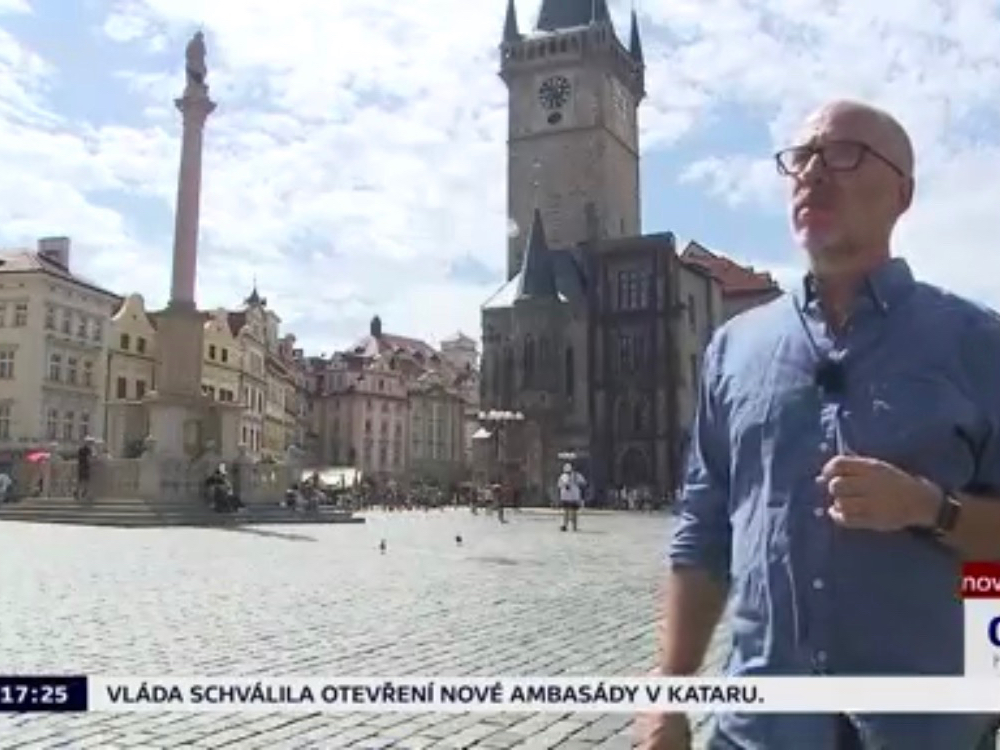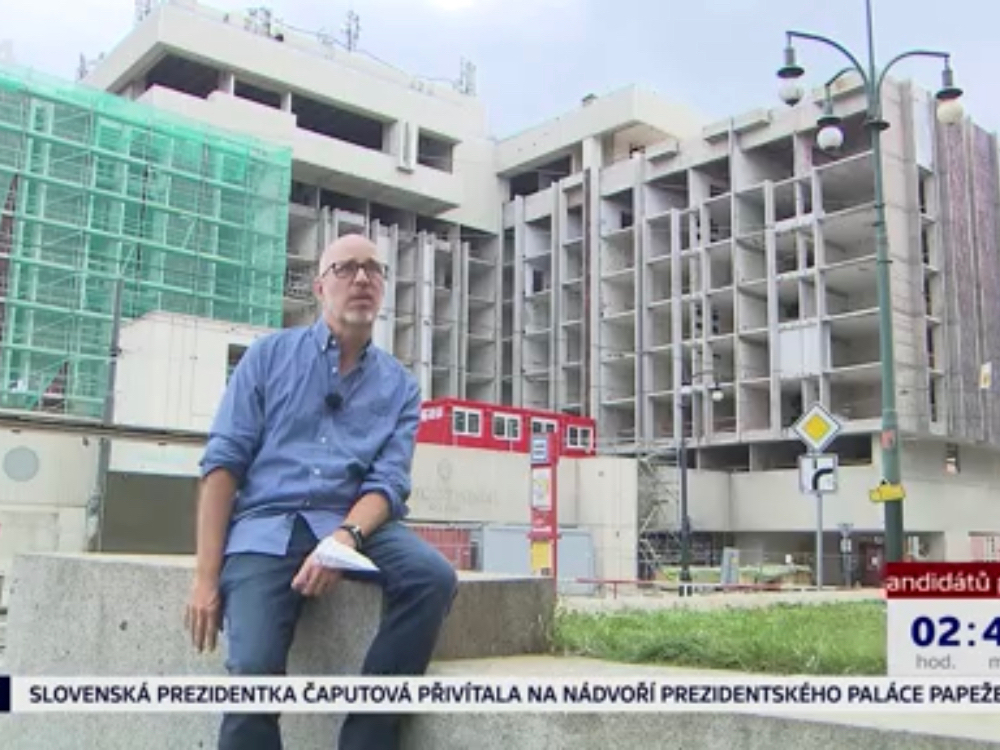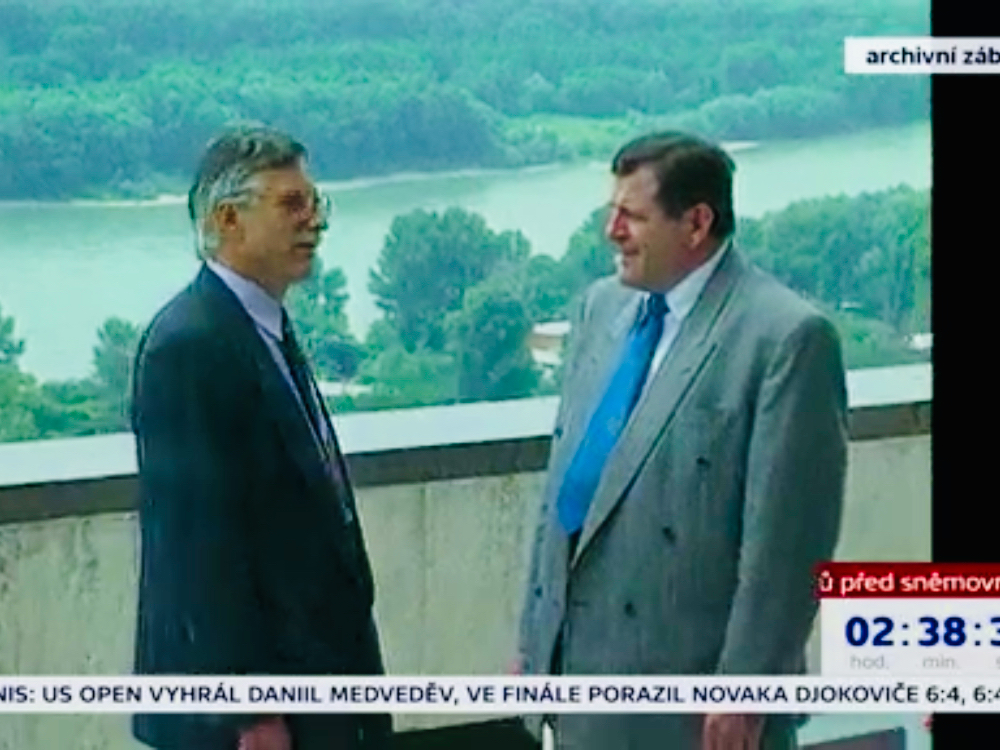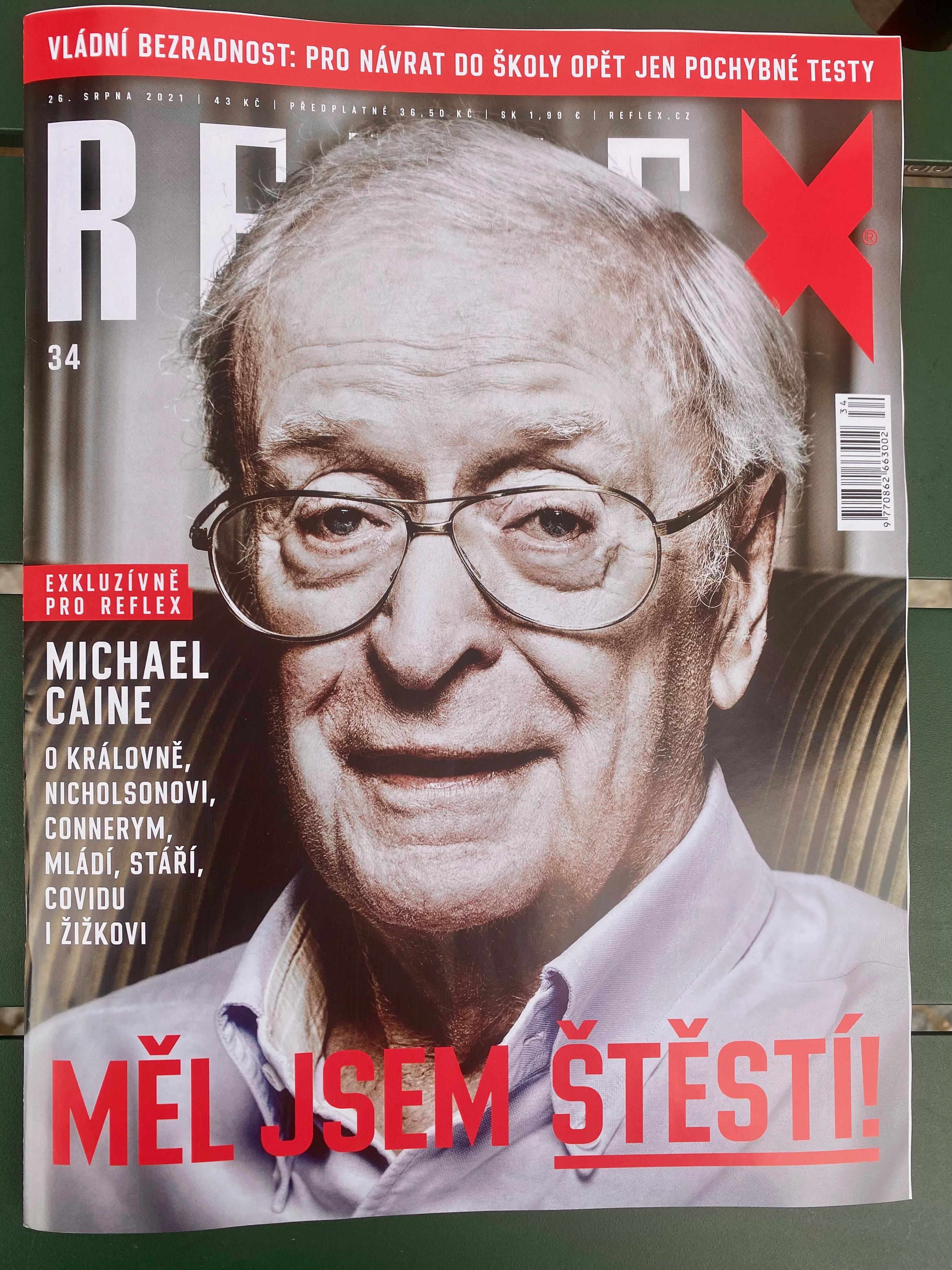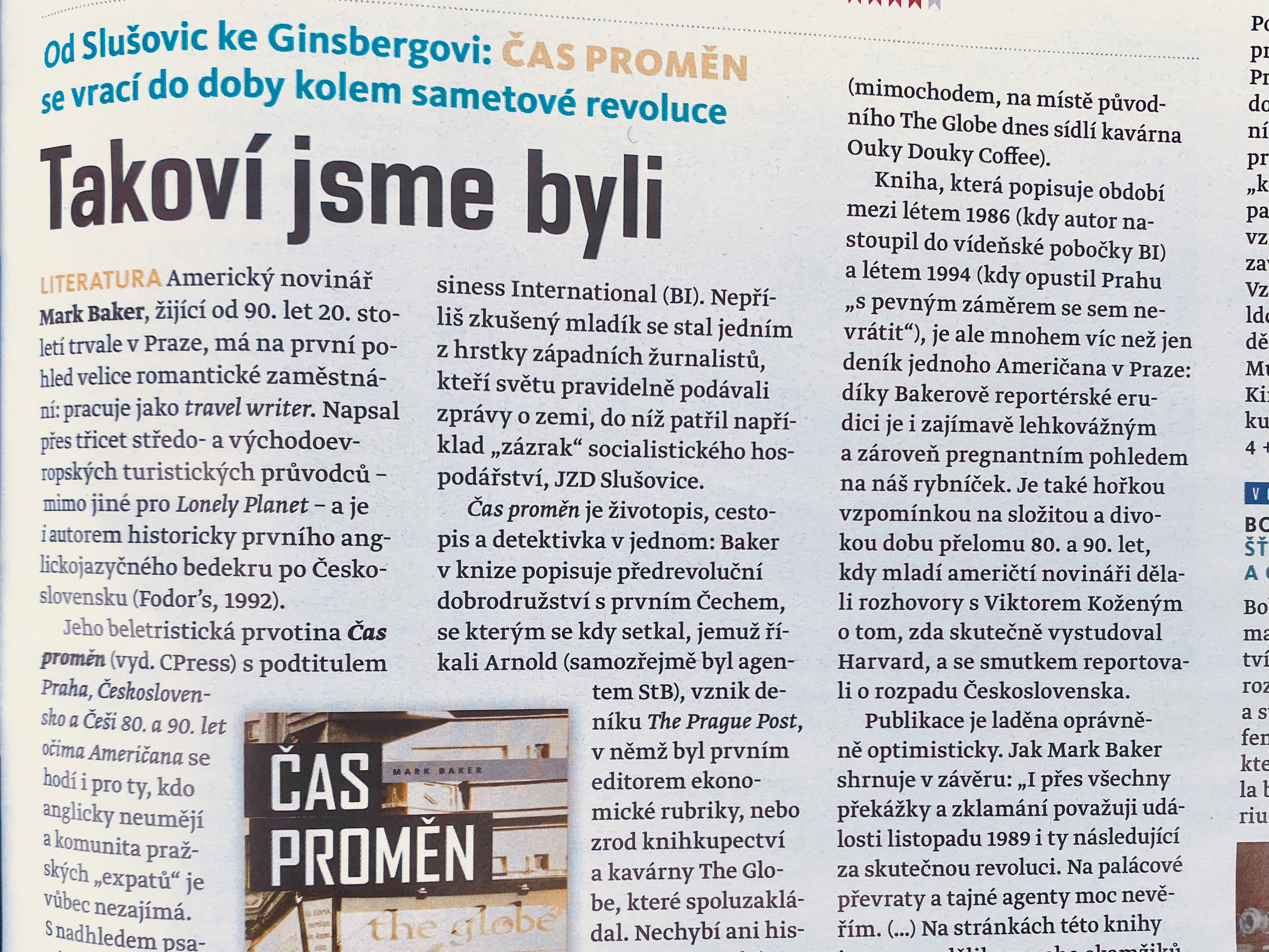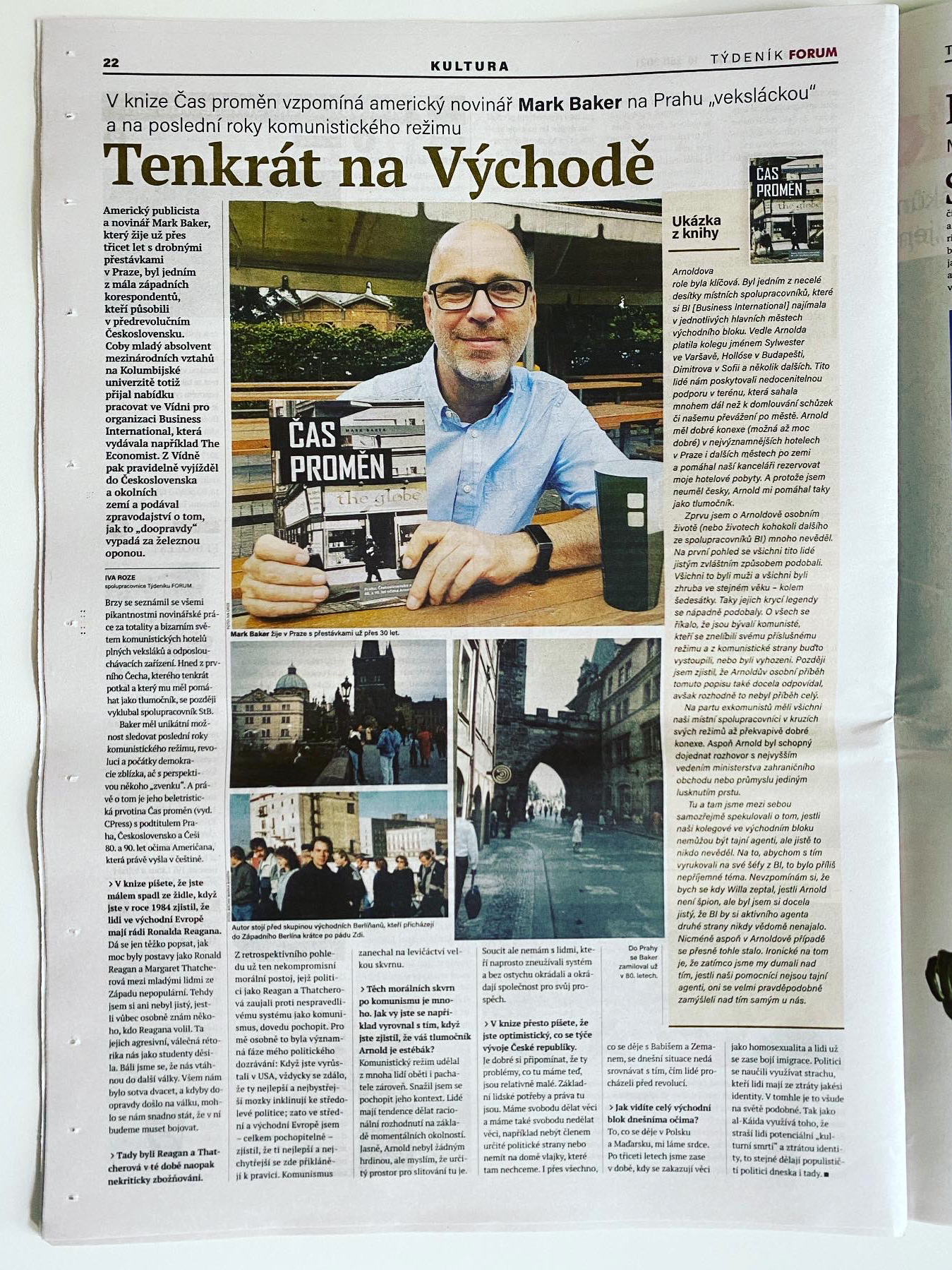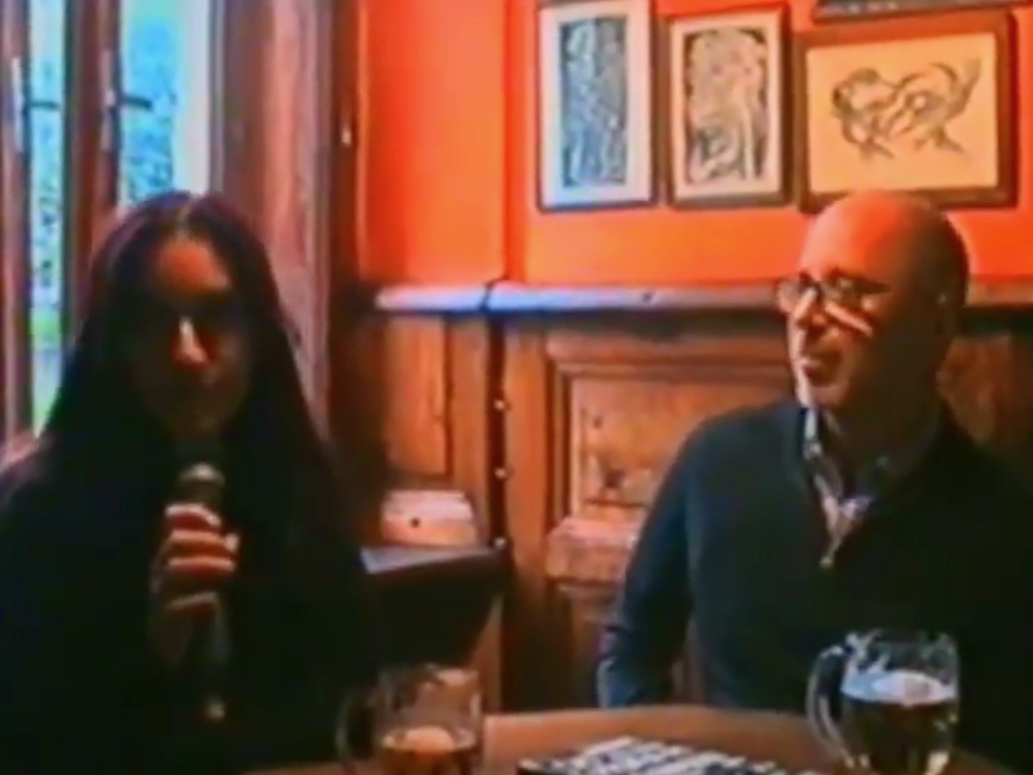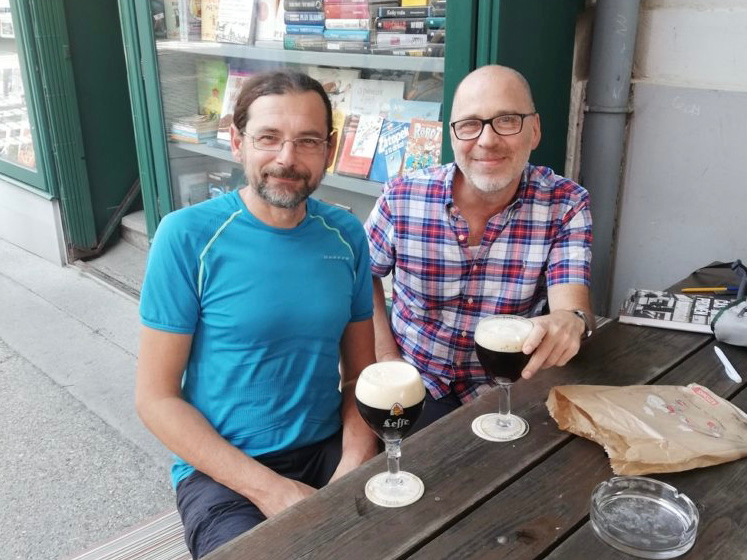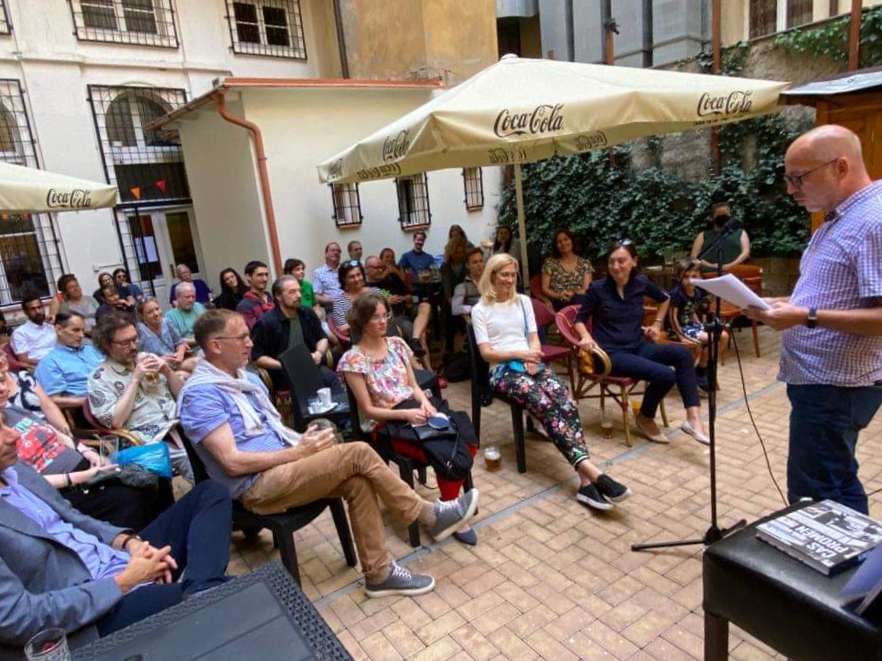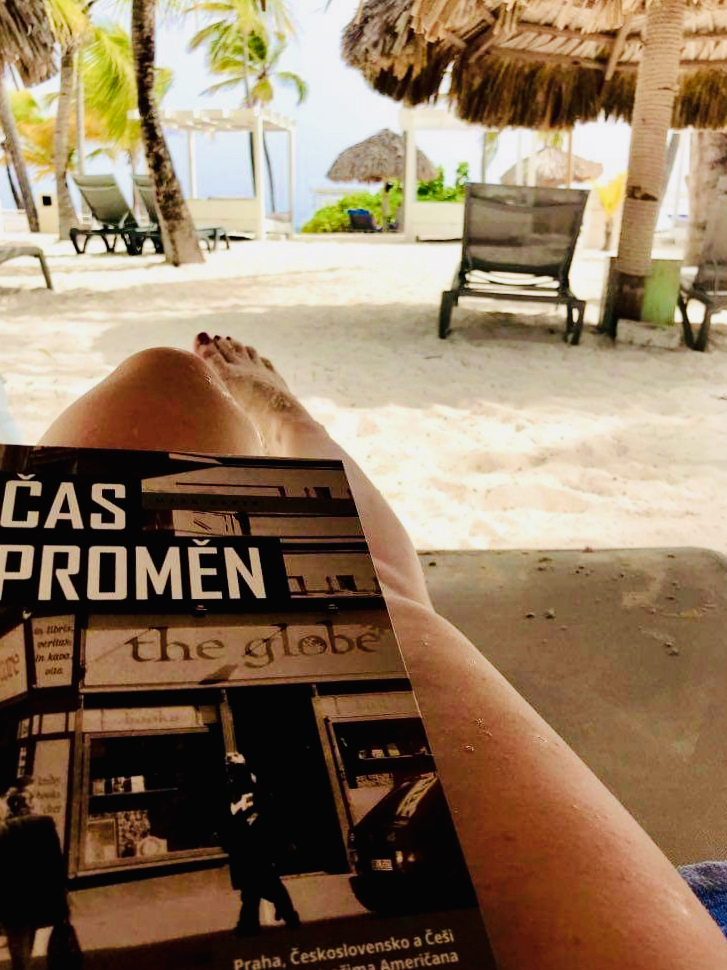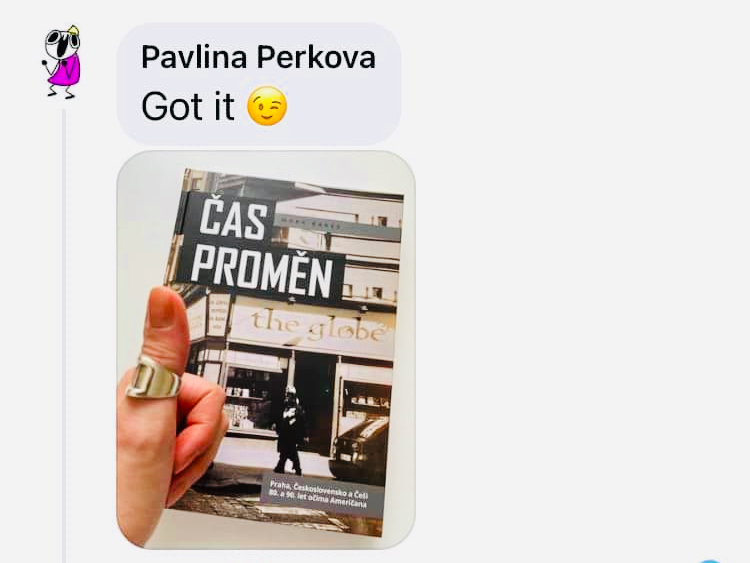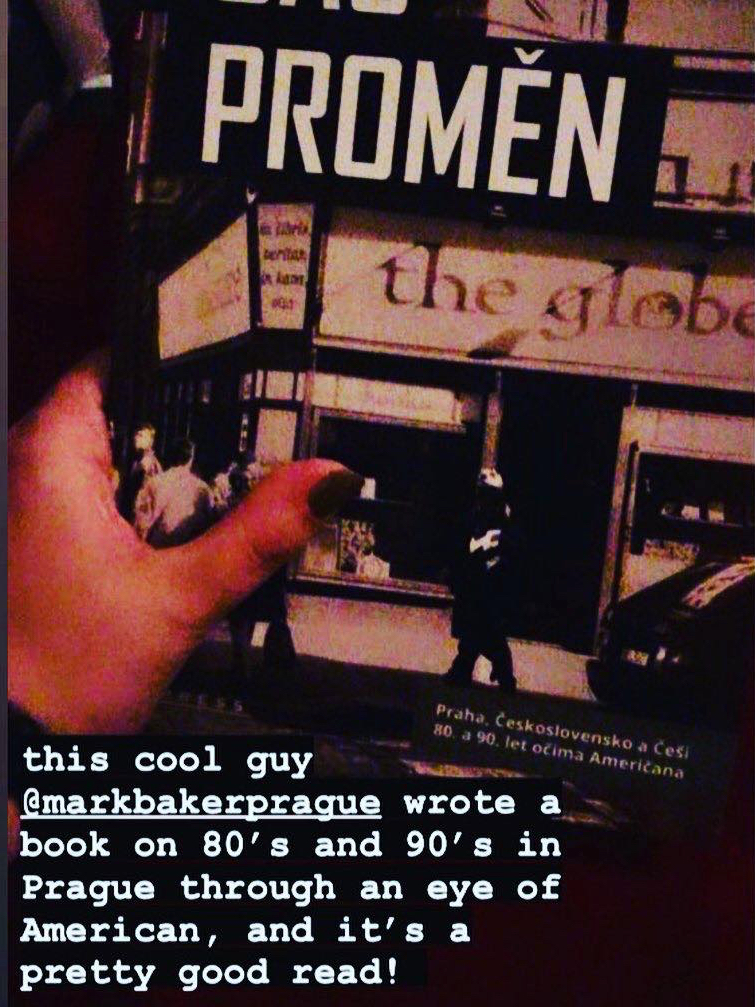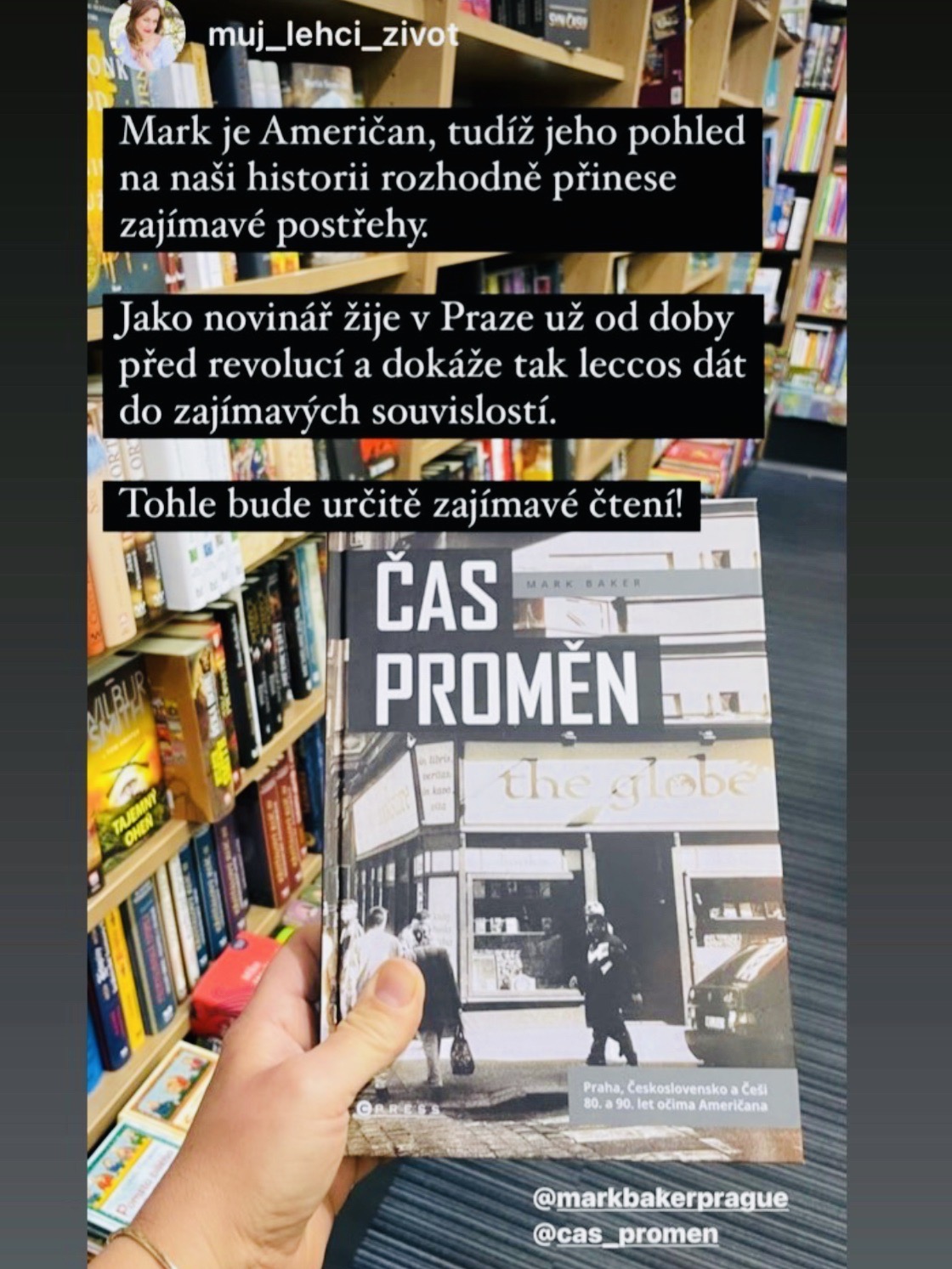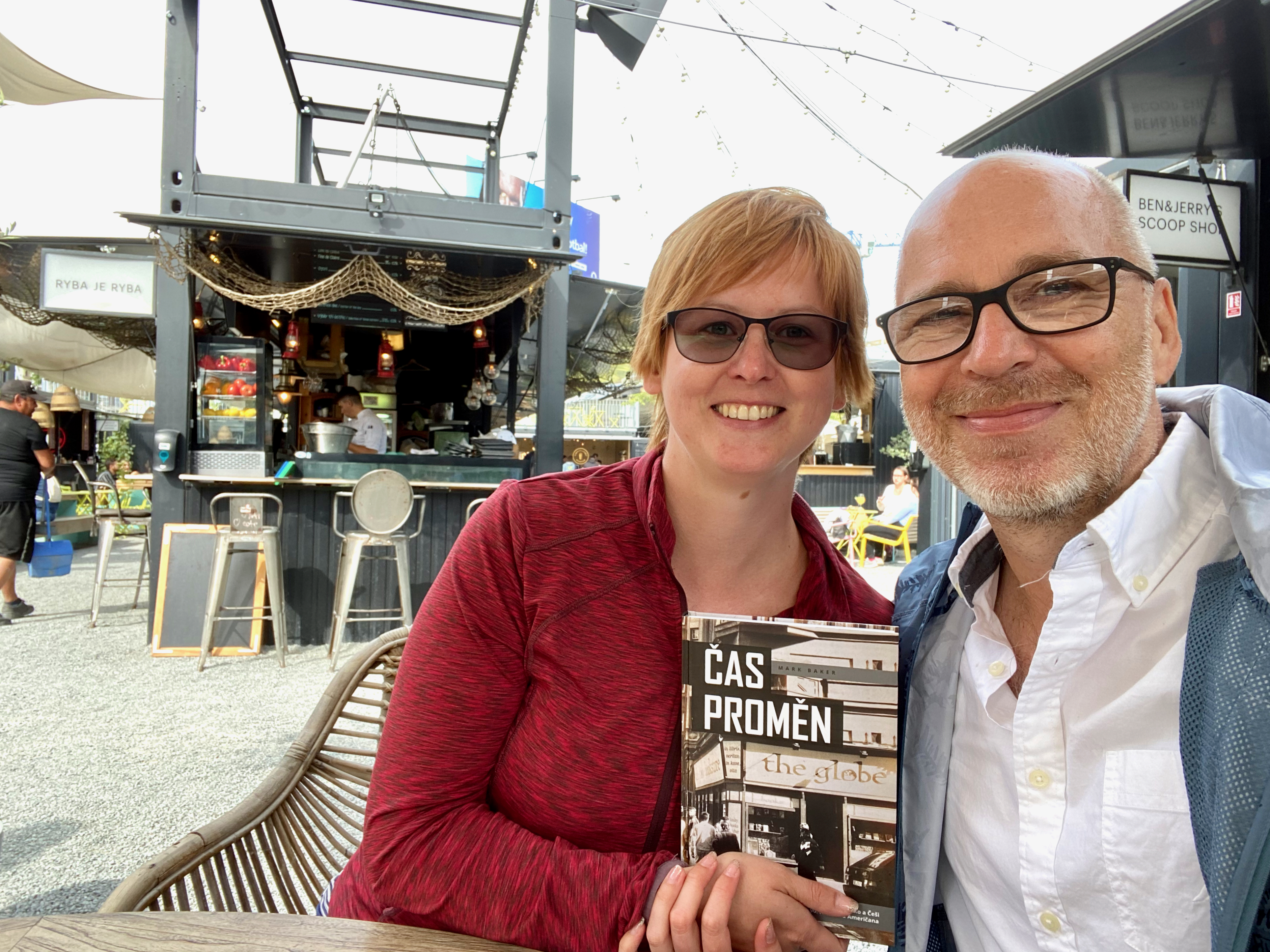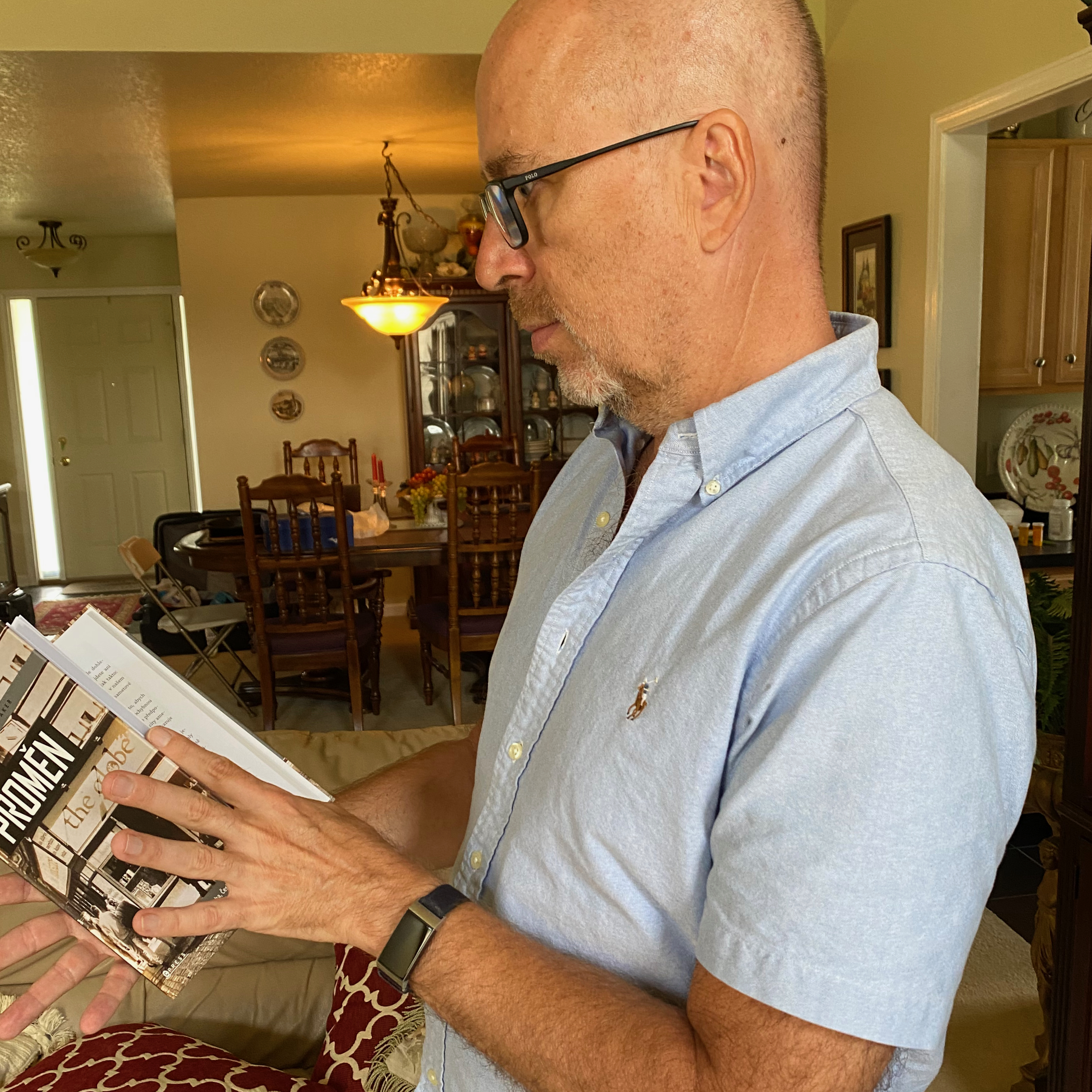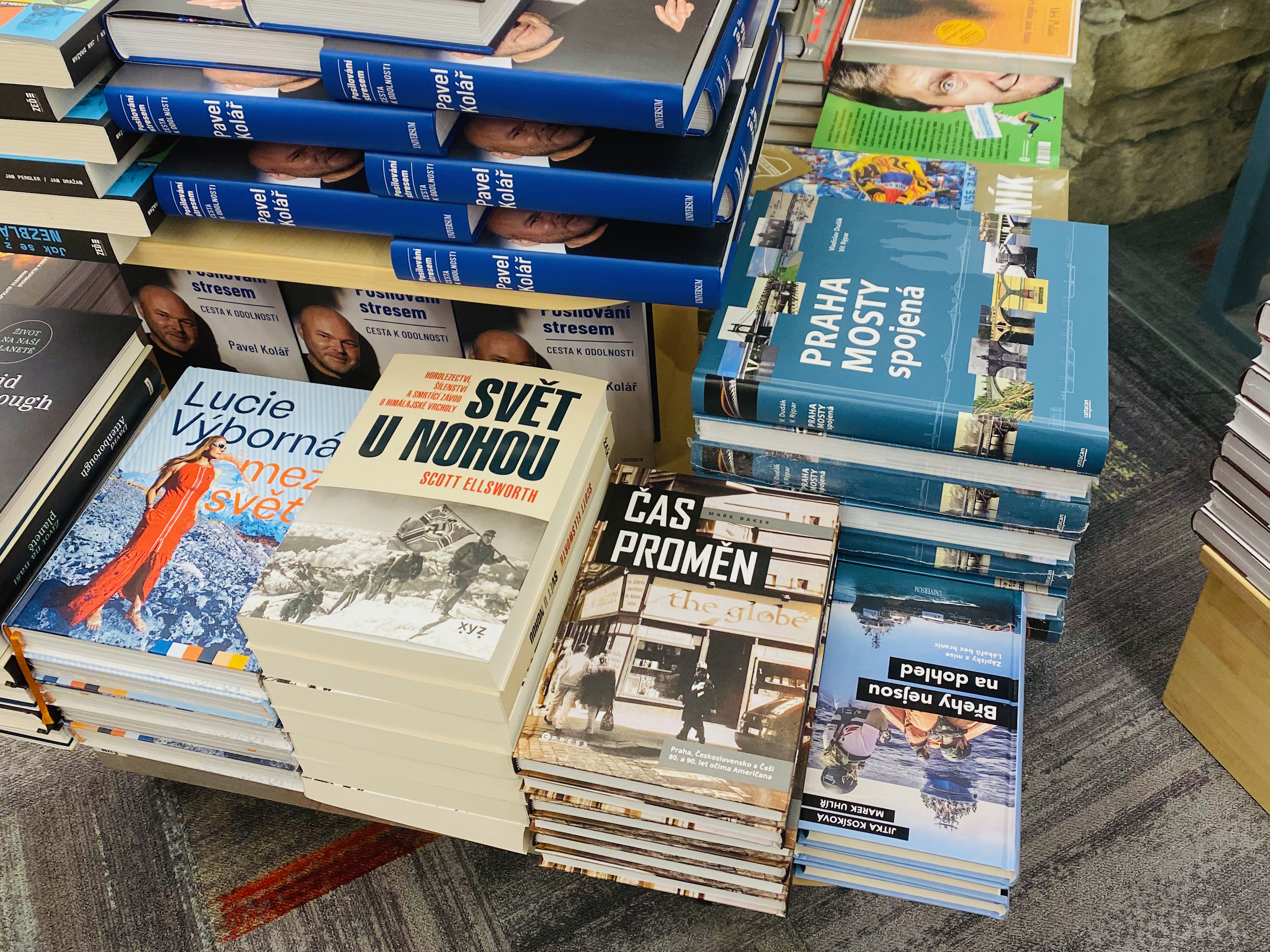As I said above, it’s been a good ride so far (and I'm grateful for the response), but looking back, I can see I harbored some illusions about how the publishing industry worked before I put out a book of my own. The main illusion, I suppose, was that publishers would be more pro-active in marketing their titles once the books are out in the wider world. I figured with all the editing and printing resources that publishers pour into the production phase, they would naturally want to recoup that investment by vigorously promoting their catalogues once the books are available for purchase. Here in the Czech Republic (and I suspect everywhere else), that’s just not the case.
I don’t mean to single out my own publisher, Albatros Media. My sense is that this is more of an industry phenomenon. Albatros, generally, has been great to work with. They quickly found a talented translator for my book, Eva Kadlecová, and always appeared open to novel, spur-of-the-moment ideas (such as including hand-drawn maps in some chapters) that would improve the book but also add to the production costs. My own editor at Albatros, Jan Dvořák, has always been highly supportive. The main problem, I think, is that publishing, at bottom, remains a numbers game – and not necessarily the number of books sold, but rather the number of titles available. As Jan told me over lunch a few weeks ago, Albatros publishes several thousand titles every year. Because of this sheer volume, only a small number of titles ever receive any supplemental marketing or promotional support. I imagine the situation is similar at other publishers too.
Another misconception I had going in was the oversized role that individual bookstores and chains play in how a book is promoted in stores. Even though I once owned a bookstore myself (and never paid the slightest attention to how publishers wanted us to display books in our store), I still mistakenly thought that the bookstore chains here would take their cues from big publishers and prominently display all the latest titles. The Czech Republic is dominated by a handful of giant chains, with names familiar to any local book-buyer: Luxor, Knihkupectví Academia, Knihy Dobrovský, Kanzelsberger, Kosmas and a couple of others. As it turns out, each chain -- and within the company, each individual store -- is responsible for deciding how and where to display a title. In practice, this can lead to some puzzling results.
After my book was out and in stores, I was curious to see how it was displayed. For a while, I would periodically pop in at bookshops around Prague and look around on the tables and shelves. A friend humorously pointed out that I was “stalking” my book. Some stores – such as Luxor’s big branch at the Palladium Shopping Center on Náměstí Republiky -- prominently displayed Čas Proměn on tables and in a stack by the entranceway; others buried the book in musty back-store shelves, labeled “History” or “Twentieth-Century History.” On the shelves, some stores – such as Dobrovský in the Dejvická metro passageway – turned the book face-forward so that prospective buyers could see it more easily. Others stores shelved the book, more traditionally, by spine. In those latter instances, you’d really have to know what you were looking for to find it.
“Academia” is considered the most prestigious of the local chains, so I was especially interested to see what they did with my book. For several weeks in August and September 2021, the chain’s handsome store on one of Prague’s most important streets, Národní třída (National Avenue), placed the book directly in their main display window – clearly visible to anyone walking by on the sidewalk. I have the feeling they were using the window to convey hidden messages about the country’s October 2021 parliamentary election (and my book somehow played a role), but whatever the reason, I definitely owe a drink to the person who dresses the windows over there. I had to pinch myself whenever I walked by.
Without a lot of marketing support from the publisher, I was on my own to publicize the book and alert readers to its existence. On the advice of my friend and fellow author, Douglas Lytle, I wrote out a list of names of former colleagues in journalism, editors at important Czech newspapers and magazines, and authors of previous book reviews whom I admired to alert them the book was out and ask if they could write about it. It might come as a surprise to readers here or people who follow me on Twitter, Instagram or Facebook (where I frequently post about the book), but this type of self-promotion doesn’t come naturally to me. Even though I believe Czech readers would want to know about Čas Proměn (obviously, I’m biased), I often found it awkward in practice to write someone out of the blue and ask them to review the book.
My homegrown marketing campaign got off to a good start at the end of July 2021 with the appearance of two audio interviews: one with Derek DeWitt for his very good podcast Prague Times, and the other with the Prague-based journalist, Ian Willoughby, for the English-language service of Radio Prague International. Though the programs were in English (and Čas Proměn is in Czech), it was fun to talk about the book with interviewers who themselves had read it beforehand and were knowledgeable about the 1980s and ‘90s, the period the book covers. Ian’s piece on the radio’s website featured a big photo of The Globe Bookstore & Coffeehouse from July 1993, which appeared under the headline: “Prague was exciting, it was beautiful, it was Havel.” I couldn’t have asked for a more appealing introduction.
Podcasts, generally, have been an enjoyable and useful way to talk at length about the book and try to generate some buzz. In September, I met up virtually with Steven Seegel at the academically-minded, U.S.-based New Books Network. Steven had also read the book beforehand and was especially interested in discussing some of the more literary aspects of book-writing, such as how I developed my characters or framed the stories.
The book’s debut, fortunately, also caught the attention of the editors at Czech TV, which in turn led to two high-profile spots on Czech national television. One was a short clip on the country’s popular news program, Udalosti, which aired on the evening of Sunday, August 22. Normally, a news report on a weekend evening in summer wouldn’t necessarily reach a large audience, but on that particular day, rainstorms had unexpectedly swept over the entire country. I can imagine that a lot of people that evening suddenly found their activities rained out and had nothing better to do than to switch on the TV and watch the national news. The second segment (fast-forward on the video to around the 20-minute mark), which ran on Monday, September 13, went longer and deeper. Czech TV correspondent Petr Kořínek, the author of the feature, told me he had personally enjoyed Čas Proměn and could identify with the characters and places I wrote about. Remarkably, he too had once lived in Ohio (in the small Appalachian town of Washington Courthouse) and had even met a former girlfriend of his at The Globe’s original location in the Prague neighborhood of Holešovice.
For the feature, Petr and I traveled to various places around Prague, including the Globe, Old Town Square and the Intercontinental Hotel, where key events in the book take place. Although I generally have a hard time watching video clips of myself, I enjoyed seeing the way Petr integrated old archive footage into his report to try to capture some of the book’s historic atmosphere.
A big part of the effort has involved trying to attract the attention of local print journalists to review the book. I was thrilled to see Veronika Bednářová’s review in the popular weekly magazine, “Reflex.” which ran at the end of August 2021. Appearing under the cheeky title,“Takoví jsme byli” (“The Way We Were”), a conscious reference to the old Streisand-Redford film from 1973, Veronika wrote that my book was “part biography, part travel tale and part detective thriller all in one.” The review’s subtitle teased the book as follows: “From [the notorious communist-era farm] Slušovice to [the beat poet Allen] Ginsberg, Čas Proměn returns to the period around the Velvet Revolution.”
Journalist Iva Roze followed up with an excellent review of her own (see photo) for the relatively new, alternative weekly newspaper, “Týdeník FORUM.” Iva’s review, “Tenkrát na východě” (“Once Upon a Time in the East”), covered an entire page of the newspaper (with an oversized photo of me holding a copy of Čas Proměn in my hand), and the title even included another funny, nostalgic film reference. I was happy to see that the piece excerpted a part of the book where I write about my Czech translator, “Arnold,” from the 1980s, who had secretly worked as an informant for the Czechoslovak secret police, the StB. This gave potential readers a taste for what the book is about.
Though Čas Proměn was published in Czech, it’s also widely available in Slovakia, where readers are accustomed to seeing and buying books in Czech. Being based in Prague, it’s been a challenge for me to alert journalists in Bratislava and other Slovak cities to the book’s existence and get them to review it. I was relieved in September to see this positive review in Slovak appear on the local “Bookworms’ Club” website. The reviewer, the Slovak author Artúr Soldán, wrote that my book reads literally “in one breath” (“Celá spomienková kniha sa číta doslovne jedným dychom”), an expression I took to mean that once you start the book, it’s not easy to put down.
I’m still in the process of reaching out to journalists and I hope that additional reviews will appear in the coming weeks and months. Find an update with some more interviews and reviews here.
By far, the most enjoyable part of publishing a book has been the in-person readings and interactions it’s made possible. Shortly after Čas Proměn was published, Michael Sito, the owner of the Globe Bookstore in Prague’s New Town (Nové Město), invited me to hold a public reading in conjunction with another budding author, Max Munson. Max had recently published a book of his own called “Diving Back In.” The day turned out to be sunny and warm, and the reading itself felt like a homecoming. Though only one of the book’s chapters deals specifically with The Globe, a picture of the store -- at its original location -- appears on the cover.
Another highlight came in September 2021, when I had the privilege to meet with the owners of a small, privately owned bookshop, “Reynkovo knihkupectví,” located in the Czech city of Česká Lípa. The owners, Petr Karvánek and his wife, Monika, had been known nationally for their short, incisive reviews of new titles that they published on their store’s website. A few weeks earlier, I had written to Petr to ask if he might be interested in reviewing Čas Proměn, and he kindly agreed. We had a wonderful meeting over beers at Prague’s Ouky Douky bookstore. Unfortunately, Petr’s review of the book lasted only a short time on the website before the site was hacked and taken down in a random ransomware attack (true story).
One of the funniest post-publishing meet-ups came on a rainy evening in late August, when I had the opportunity to speak with two members, Tyko Say and Sandra Pasławska, of the Prague-based poetry foundation, “Object:Paradise,” at Klub Újezd in Malá Strana. I didn’t know much about Object:Paradise before the interview and had no idea what to expect. As it turns out, both Tyko and Sandra are laser-focused on Prague’s early-‘90s literary scene, and the discussion turned out to be really enjoyable. For an hour or so, over beers, I chatted with Sandra about the ‘90s, while Tyko filmed the whole discussion on a retro VHS camera. Find a teaser clip on Instagram of the interview here.
The best part of publishing a book, of course, has been receiving feedback from individual readers – whether through tagged on Instagram or Twitter, or (even better) getting an email. After working for so many years on travel guidebooks, where readers only rarely reach out to writers (and when they do, it’s often to complain), it’s been an unexpected pleasure to regularly hear from readers (especially Czechs and Slovaks), who connect personally with the book. I’ll include one of those emails here below from a reader named “Petr,” located in the Czech town of Český Brod, to give you an idea of what I mean:
Dear Mark,
I'm 48 and just finished your book. It reads so quickly and gives quite an interesting insight into my country's recent history from another perspective. I also found some information that I hadn't been aware of before (Jan Kavan, Romania, "law students," etc). Anyway, I just meant to thank you for keeping a positive relationship with Czechia. I will definitely make my [parents] plus my better half give it a read and possibly get a few more copies as Christmas gifts. I promise. Thank you and all best, Petr
It’s these messages that make the whole thing feel worthwhile.
(Scroll past the map for more photos).
